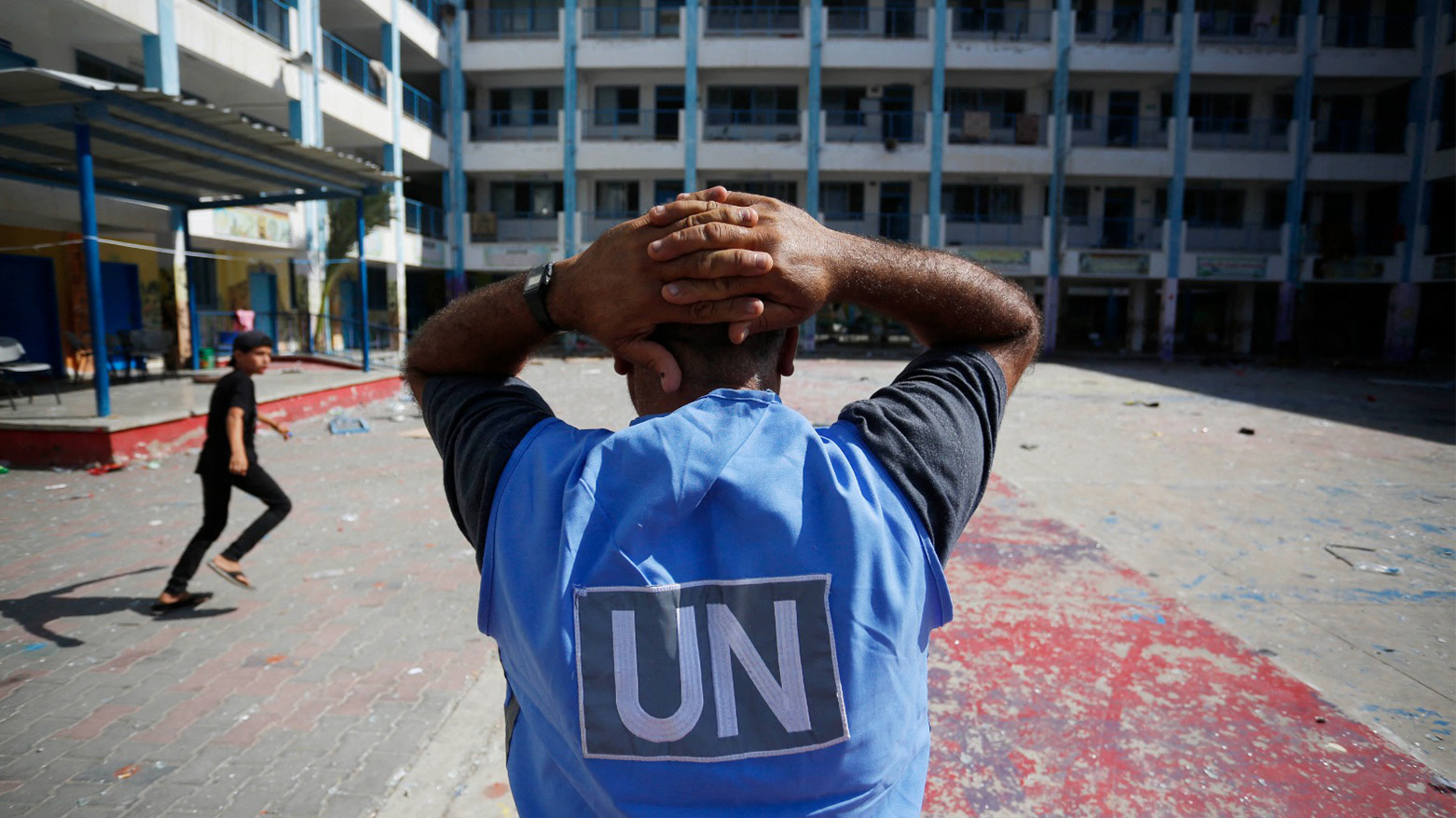Gaza running out of ‘body bags’, says UN agency

ERBIL (Kurdistan 24) – Among shortages in basic necessities such food, water and shelter, Gaza is now running out of body bags as the bloody conflict enters its 11th day, a United Nations agency in the Palestinian Territories told Kurdistan 24 on Wednesday.
“You do not know…you do not know how to put the bodies or bury them,” Adnan Abu Hasna, a media adviser for the United Nations Relief and Works Agency (UNRWA), the UN Palestinian refugees agency, told Kurdistan 24 via Skype in the Gaza Strip.
“The enclave is now running out of body bags,” he added.
The health system has been “overwhelmed” with casualties, Abu Hasna continued, adding the coastal strip has about 3,000 beds in its 34 hospitals, including large medical facilities.
With the evacuation order from the Israeli Defense Forces (IDF), residents of northern Gaza were forced to flee south, while the aerial bombing did not spare the areas that were supposed to provide shelter.
“Everything is under real threat, including the UN installations where we have the blue flag,” Abu Hasna said.
At least six people were killed on Tuesday afternoon when a UNRWA school was hit in the al-Maghazi refugee camp, the agency said, without further elaboration on the entity behind the attack.
Over a million Palestinians have been displaced by the conflict, half of whom are sheltering at UN buildings, according to the spokesperson.
If all the medical facilities are evacuated in the north, there will remain about 1,500 hospital beds for nearly 10,000 wounded people and thousands of other patients with other underlying conditions, the spokesperson said, highlighting the unprecedented challenge the besieged enclave is facing.
Gaza currently “has no food, no water and no access to humanitarian aid,” Abu Hasna reiterated, adding the embattled residents are now drinking “salty and dirty water” as desalination plants are collapsed.
“We distributed bread yesterday. Every person [got] a piece of bread per day,” he said, adding the remaining food will feed the Gazans for 3-4 days only, as the strip’s two main border crossings remain sealed.
Ahmed al-Mandhari, the regional director for World Health Organization, in an interview with Kurdistan 24 on Tuesday echoed similar concerns about Gaza’s falling health sector.
The medical infrastructure is “hours” away from total collapse, al-Mandhari said, voicing concerns that should the dire situation continue, more lives will be lost.
In the last 11 days, several hospitals have been targeted. As a result of an explosion at Al-Ahli Arab hospital on Tuesday night, at least 500 people are feared to be dead. Hamas and a number of Arab countries directly blamed Israel for the attack, which Tel Aviv and US have denied.
Nearly 2,800 people have been killed so far in the Gaza Strip as of Monday, according to figures Kurdistan 24 has obtained from the WHO’s regional office.
The new round of conflict was sparked by Hamas’ unprecedented and deadly attack on the Jewish state on Oct. 7, when the Islamic group’s militants stormed the Israeli southern borders and attacked Jewish settlement communities, or Kibbutzim, on the border, resulting in more than 1,400 casualties, including women, children, the elderly as well as soldiers.
Nearly 200 more Israelis have been taken hostage, including soldiers and members of the security forces. They are now believed to be held in Gaza.
Israeli officials described the attack as the deadliest in decades, prompting a severe retaliatory attack on the Palestinian enclave, which is expected to imminently face an IDF ground offensive amid non-stop aerial bombings.
Western nations have largely stood alongside Israel, arguing the country retains the full right to self-defense while numerous Arab countries have slammed Israel’s harsh response over its significant civilian casualties and “collective punishment.”
The Israeli forces have accused Hamas of using civilians as human shields and hiding in tunnels beneath the densely-populated city, where the group has launched thousands of rockets against Israel within a short period of time in a bid to overwhelm the country’s Iron Dome, the Israeli flagship air defense system.
The two sides have engaged in at least four rounds of wars since Islamic militants took over the Gaza Strip in 2007.
Sporadic and smaller clashes have taken place between the IDF and Palestinian militants in both the Gaza and West Bank.
